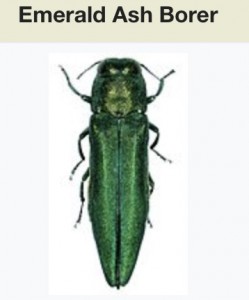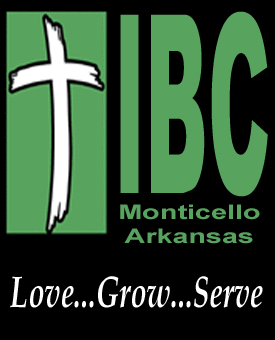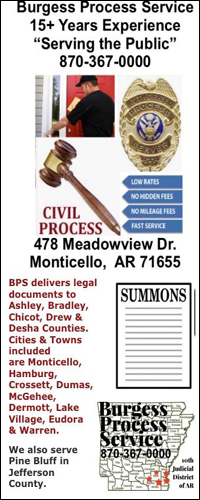Emerald Ash Borer in Drew County
June 30th, 2017 by iPhone Drew County has been added to confirmed sites of the emerald ash borer (EAB) – an invasive beetle that feeds on and kills ash trees.
Drew County has been added to confirmed sites of the emerald ash borer (EAB) – an invasive beetle that feeds on and kills ash trees.
Drew County was already included within the current 33-county EAB Quarantine as a buffer county. Surveying for further movement of the pest will be completed by September, at which time the Arkansas State Plant Board (ASPB) will consider expanding the quarantine.
An EAB quarantine was established in September of 2014 and expanded in October of 2016 by the ASPB to slow the movement of EAB. The 33-county area included in the quarantine encompasses counties with confirmed EAB sites, as well as buffer counties around those areas. Find a map with all counties included in the EAB Quarantine at http://www.aad.arkansas.gov/quarantines
The goal of the current federal EAB quarantine is to limit the spread of EAB caused by long-distance movement of ash by humans. Quarantined items (which cannot be transported outside of the quarantine area) include firewood of all hardwood species, and the following ash items: nursery stock; green lumber with bark attached; other material living, dead, cut or fallen including logs, pulpwood, stumps, roots, branches, mulch and composted/un-composted chips (1 inch or greater). Firewood is the only quarantined item that relates to all hardwood; all other quarantined items are relative to ash, only.
Since the first Arkansas detection in 2014, EAB has been confirmed in the following 18 counties: Bradley, Calhoun, Clark, Cleveland, Columbia, Dallas, Drew, Garland, Hempstead, Hot Spring, Lafayette, Montgomery, Nevada, Ouachita, Pike, Randolph, Saline, and Union. The ASPB works with United States Department of Agriculture Animal and Plant Health Inspection Service to confirm EAB sites.
The EAB is a small beetle (1/2 inch in size) that originated in Asia. The first EAB discovery took place in Michigan, over a decade ago. EAB infestation usually kills the ash host within 2-5 years of infestation.
For further quarantine details, contact the ASPB at 501-225-1598.



























































